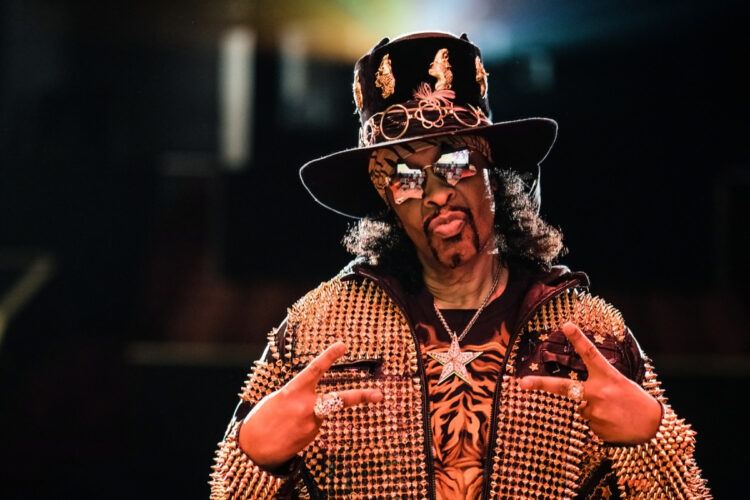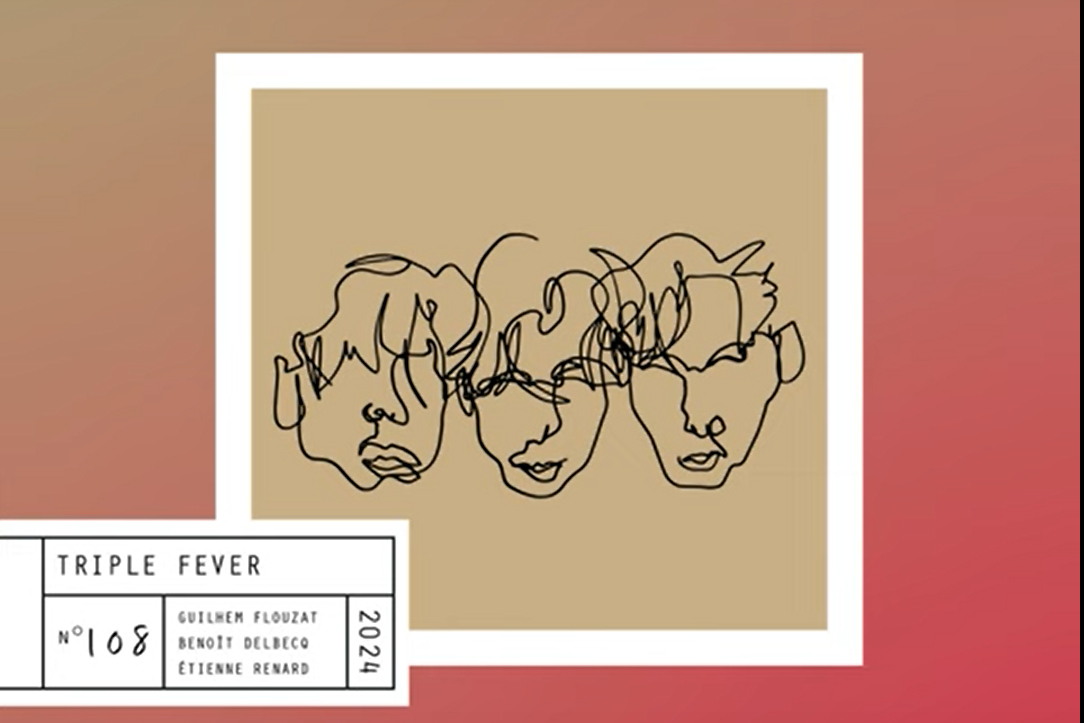Review: Bootsy Collins’ ‘The Power of the One’
|
Getting your Trinity Audio player ready...
|
Far too often when people succeed in their field, it becomes far too easy for them to cling to that which brought them acclaim. The best artists, however, are always looking for ways to better express themselves and explore new ideas. Now in the fifth decade of his professional career, bass legend Bootsy Collins has every excuse to rest on his laurels. Instead, as shown on The Power of the One (Bootzilla Records/Sweetwater Studios, 2020), he continues to push the modern style he helped define into other realms to try to find a universal form without labels.
In full disclosure, Collins’ emphasis on a universal idea is nothing new. Arguably funk itself – in merging that historically labeled as soul, rhythm and blues, jazz, and rock – shows a yearning for a singular form. Of course, he has mined this area heavily throughout his illustrious career where he has served at the forefront of funk. You will find him contributing to James Brown’s most intense singles (including “Get Up (I Feel Like Being a) Sex Machine,” “Soul Power,” and “Talkin’ Loud and Sayin’ Nothing”). Later he furthered these concepts on the strongest Parliament-Funkadelic outings such as Mothership Connection (Casablanca, 1975), Funkentelechy vs. The Placebo Syndrome (Casablanca, 1977), and One Nation Under a Groove (Casablanca, 1978). And then, of course, there are his own offerings as a leader, particularly Stretchin’ Out in Bootsy’s Rubber Band (Warner Bros., 1976). But even these seminal recordings are just the tip of the iceberg in terms of his artistic expansiveness. In large part, this is due to Bootsy’s broad ethos when it comes to music. As he outlined in a 2011 interview with NPR: “Funk is the absence of any and everything you can think of but the very essence of all that is. And saying that, I’m saying funk is anything that we create in our minds that we want to do…” This mindset has led to collaborations with several rappers and DJs, heavy rockers, and even Bluegrass hero Del McCoury.
The Power of the One begins with “Funk Formula 1.” Although only slightly over half a minute in length, it serves a significant role on the album, linking the bandleader’s current sonic explorations to his past. A thick bass line with a heavier edge meets looped rhythms underneath a monologue about finding space between sounds and ideas. It aptly sets a conceptual roadmap for the pieces that follow and particularly well predicates the title track.
“The Power of the One” is the strongest selection on the album, both in terms of messaging and overall aesthetics. Beyond its overtly earworm-ish nature, one finds Bootsy’s intriguing interplay with the iconic George Benson. Over the last few years, the guitarist has been involved in various interesting projects, including a single with Damon Albarn’s Gorillaz, and this piece follows that trend. Other than a brief scat segment, it seems to rely less on the smooth sounds that made the guitarist a household name. Breezin’ is put aside in favor of the soulful solos he showcased as a sideman for Brother Jack McDuff. But this is hardly a retrospective reflection as the weaved-in phrasing simultaneously suggests sampling. This is made even more readily apparent by the later inclusion of rapped lyrics as well. Of course, this is against the backdrop of tight rhythms, gnarly bass and keyboard lines, and brass blasts. Good luck with imposing a precise label on this track.
Beyond Benson, the rest of the album is also replete with guest artists, with each used in unique ways. “Jam On” begins with Snoop Dogg rapping but draws significantly from early 90s R&B and rock, by way of Brandon “Taz” Niederauer’s scorching electric guitar solo, than hip hop. “Stargate” features an isolated and contemplative Victor Wooten building a slow ballad on love and peace that finds a middle ground between modern pop and 70s soul.
Christian McBride, is showcased on electric bass on “Funkship Area – 51.” Although he, like Bootsy, is a James Brown alum, the track seemingly borrows more from P-Funk than the Godfather of Soul. It is deep and funky with various whirs and synthesized runs, including a brief Worrell-like phrase on keyboards. A somewhat straight-ahead piano, precise horn hits, and a brief Fred Wesley influenced trombone solo ground it a bit, but not enough to stop its launch. The result is a party on a rocket ship both as it takes off from the planet and as it guides safely through the stars. While McBride has shown great versatility throughout his other works, this seems to cover an area he explores less frequently outside of special projects like his Philadelphia Experiment (Ropeadope Records, 2001).
With “Club Funkateers,” Bootsy closes any preconceived gap between the work of James Brown – even at one point citing the seminal “Mother Popcorn”- and some of Branford Marsalis’ 90s work. The saxophonist aptly notifies listeners that with all the jazz/hip-hop/R&B hybrids over the past few decades, his Buckshot Lefonque project was an early guide to follow. He reappears with another funk powerhouse bassist, Larry Graham, on WantMe2Stay. Both songs are welcome reminders that despite the notoriety of his younger brother’s very conservative and traditionalist approach, the elder Marsalis sibling has always been open to new sounds.
As a whole, the album is eclectic and works hard to draw connections in music. Other tracks often examine how funk connects to metal and hip hop. “Slide Eazy,” for instance, is reminiscent of Living Colour’s “Cult of Personality” with a brass section. “Wishing Well” interjects trap rhythms into a slow jam. But does The Power of the One ultimately succeed in showing that they are all just one musical form?
Funk yeah.
Tracklist: 1. Funk Formula 1; 2. The Power of the One (feat. George Benson, Brian Culbertson, Brennan Johns, Ouiwey Collins & The Williams Singers); 3. Slide Eazy (feat. Ellis Hall & Rod Castro); 4. Creepin’ (feat. Christone “Kingfish” Ingram); 5. Jam On (feat. Brandon “TAZ” Niederauer & Snoop Dogg); 6. Lips Turn Blue; 7. Funkship Area-51 (feat. Christian McBride & Brother Nature); 8. Bewise (feat. Robert “Bewise” Harding); 9. Soul Not 4 Sale (feat. Hollywood Anderson); 10. Club Funkateers (feat. Branford Marsalis, Victor Wooten & Danielle René Withers); 11. WantMe2Stay (feat. Larry Graham, Branford Marsalis & Uché Ndubizu); 12. Funktropolis (feat. Brother Nature & Johnny Davis); 13. Wishing Well (feat. Ellis Hall); 14. Bootsy Off Broadway (feat. Christian McBride, Emmaline, & Frankie “Kash” Waddy); 15. Stargate (feat. Victor Wooten, Ellis Hall, Dr. Cornel West, & EmiSunshine); 16. Stolen Dreams (feat. Rod Castro, Brother Nature & Henry Invisible).
Personnel: In addition to guest artists noted above, Bootsy Collins performs on numerous instruments including Spacebass, lead vocals, background vocals, live drums, and percussion.



